


Running a washing machine empty is a question that many homeowners have pondered. Is it safe to run a washing machine without any clothes in it? Will it damage the machine or waste energy? In this ultimate guide, we will explore the reasons why you might want to run a washing machine empty and the potential risks involved.
There are a few reasons why you might consider running your washing machine empty. One of the most common reasons is to clean the machine itself. Over time, residue, dirt, and detergent build up inside the machine, which can cause unpleasant odors and even affect the performance of your machine. Running an empty cycle with a cleaning agent specifically designed for washing machines can help remove this buildup and keep your machine running smoothly.
Another reason to run a washing machine empty is to troubleshoot any issues that may arise. If you notice strange noises, leaks, or other problems with your machine, running it empty can help you identify the issue. This can save you time and money by allowing you to address the problem early, before it becomes more serious.
While running a washing machine empty can be beneficial, there are also potential risks to consider. Running a washing machine without any clothes in it can cause the machine to become unbalanced, leading to excessive vibrations and damage to the machine. Additionally, running an empty cycle uses energy and water, which can be seen as wasteful. It’s important to weigh the benefits against the potential risks and make an informed decision based on your specific needs.
Overall, running a washing machine empty can be useful for cleaning and troubleshooting purposes, but it’s important to be mindful of the potential risks. If you decide to run an empty cycle, be sure to follow the manufacturer’s instructions and use an appropriate cleaning agent. Taking care of your washing machine can help prolong its lifespan and ensure optimal performance.
Running a Washing Machine Empty: What You Need to Know
Running a washing machine empty can be a useful practice that helps to keep your machine clean and in good working condition. However, there are a few things you need to know before you start running your washing machine empty.
Why Run a Washing Machine Empty?
There are several reasons why you might want to run your washing machine empty:
- Cleaning: Running your machine without any clothes allows you to clean the interior, removing any built-up residue, dirt, or grime.
- Preventing Odors: An empty cycle can help eliminate any lingering odors in your washing machine, keeping it fresh and free from unpleasant smells.
- Maintenance: Running your machine empty periodically can help maintain its performance and extend its lifespan.
How to Run a Washing Machine Empty
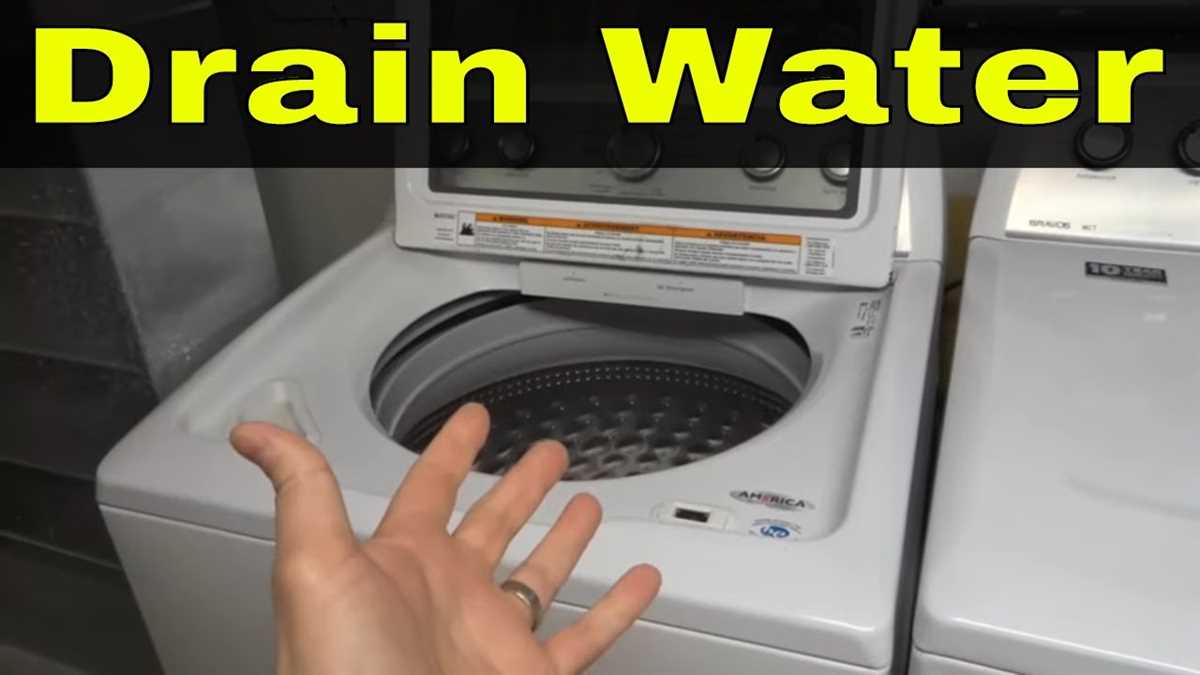
Here are the steps to run a washing machine empty:
- Check the Manufacturer’s Instructions: Before running your washing machine empty, it’s always a good idea to check the manufacturer’s instructions. They may have specific recommendations or precautions to follow.
- Choose the Right Cycle: Select a cycle that is designed for cleaning or maintenance, such as a “clean” or “maintenance” cycle. Avoid using cycles that are meant for delicate or heavily soiled items.
- Add Cleaning Agents: Depending on the manufacturer’s recommendations, you may need to add a specific cleaning agent, such as a washing machine cleaner or bleach. Follow the instructions on the product label.
- Run the Machine: Start the empty cycle and let the machine run its full cycle. This will typically include filling with water, agitating or tumbling the water, draining, and spinning.
- Clean the Exterior: While the machine is running, take the opportunity to clean the exterior surfaces with a damp cloth and mild detergent.
Frequency of Running an Empty Washing Machine
The frequency of running an empty washing machine will depend on various factors, such as how frequently you use your machine, the types of clothes you wash, and the hardness of your water. As a general guideline, it is recommended to run an empty cycle every 1-3 months to maintain optimal performance and cleanliness.
Considerations and Precautions
Here are a few considerations and precautions to keep in mind when running a washing machine empty:
- Water Usage: Running an empty cycle can use a significant amount of water, so try to balance it out by running full loads of laundry before or after the empty cycle.
- Cleaning Agents: Be sure to use the appropriate cleaning agents recommended by the manufacturer to avoid any damage to your machine.
- Energy Efficiency: Running an empty cycle can consume energy, so consider running it during off-peak hours or when you have other loads of laundry to wash.
- Safety: Always follow safety precautions and keep children and pets away from the washing machine while it is running.
By following these guidelines and taking the necessary precautions, you can safely and effectively run your washing machine empty, keeping it clean and well-maintained for years to come.
The Pros and Cons of Running a Washing Machine Empty
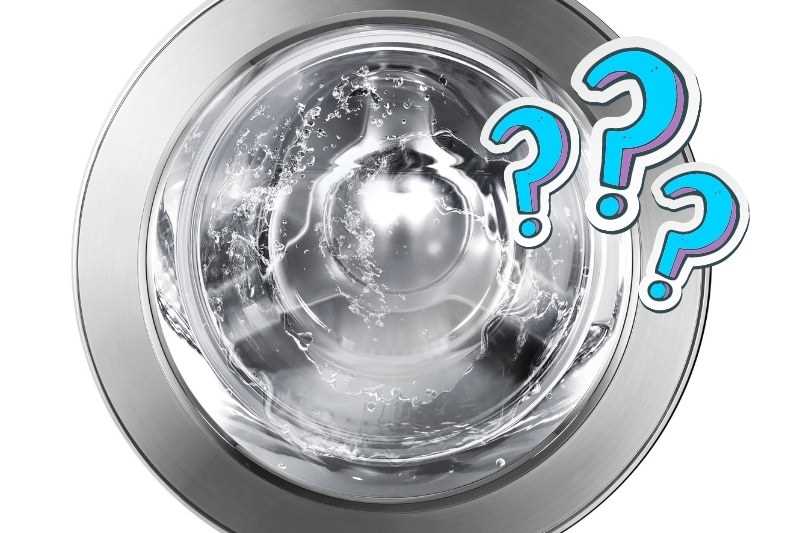
Pros
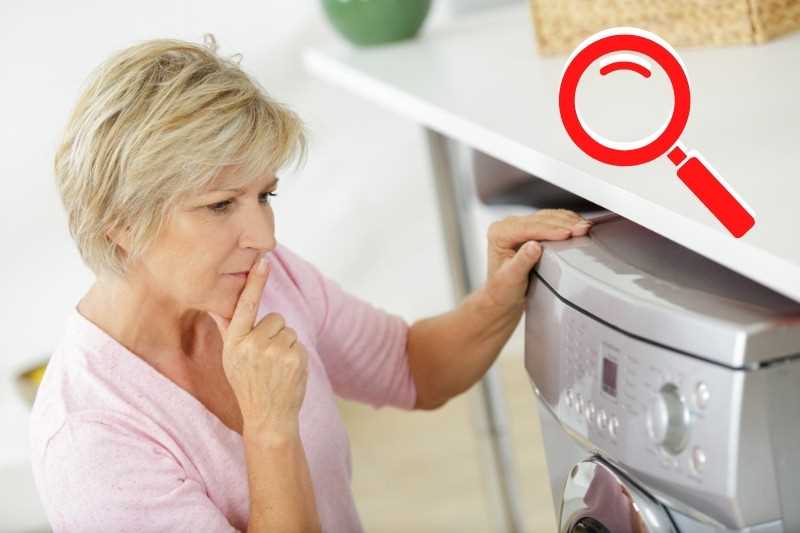
- Cleaning: Running a washing machine empty allows you to clean the drum and the interior parts of the machine without any clothes getting in the way. This helps remove any built-up residue, detergent deposits, and dirt that may have accumulated.
- Odor removal: Empty runs can help eliminate any unpleasant odors that may be present in the machine. This is especially useful if you’ve noticed a persistent smell coming from your washer.
- Maintenance: Regular empty runs can contribute to maintaining the overall performance and longevity of your washing machine. By keeping the drum and interior components clean, you can prevent potential damage or malfunction caused by the accumulation of debris.
Cons
- Water and energy waste: Running a washing machine empty means using water and energy without any tangible benefit. This can contribute to wastage and increase your utility bills.
- Environment impact: Water and energy wastage can also have a negative impact on the environment. Consistently running your washing machine empty can contribute to unnecessary resource consumption and carbon emissions.
- Potential damage: While running a washing machine empty can help clean the drum, it may also expose the machine to unnecessary wear and tear. Constant empty runs might lead to premature aging of certain components.
In conclusion, running a washing machine empty can have both pros and cons. It can help clean the machine, eliminate odors, and maintain its performance. However, it comes with the downside of water and energy waste as well as potential damage to the machine. It’s important to strike a balance and consider these factors before deciding to run your washing machine empty.
Impact on Energy Efficiency and Water Consumption
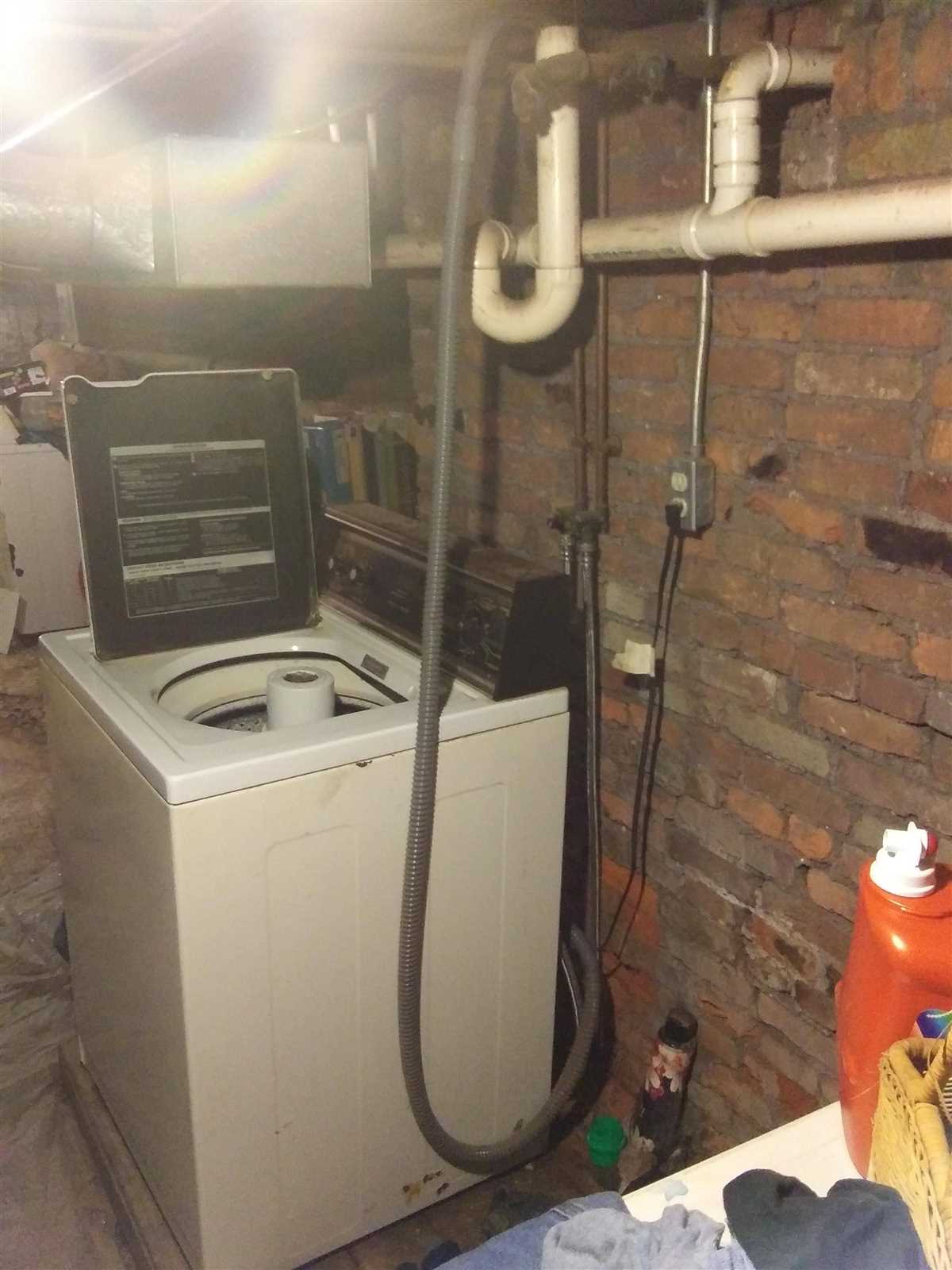
Running a washing machine empty can have negative impacts on both energy efficiency and water consumption. Here are some reasons why:
Energy Efficiency
- Wasted energy: When you run a washing machine without any clothes, the machine still uses the same amount of energy as it would with a full load. This means that the energy used goes to waste, resulting in lower energy efficiency.
- Potential overheating: Running a washing machine empty can lead to overheating, especially if the machine is not designed to run without a load. Overheating can cause damage to the machine and negatively impact its energy efficiency.
- Increased cycle time: Some washing machines have sensors that adjust the cycle time based on the load size. Running the machine empty may result in a longer cycle time, leading to higher energy consumption.
Water Consumption
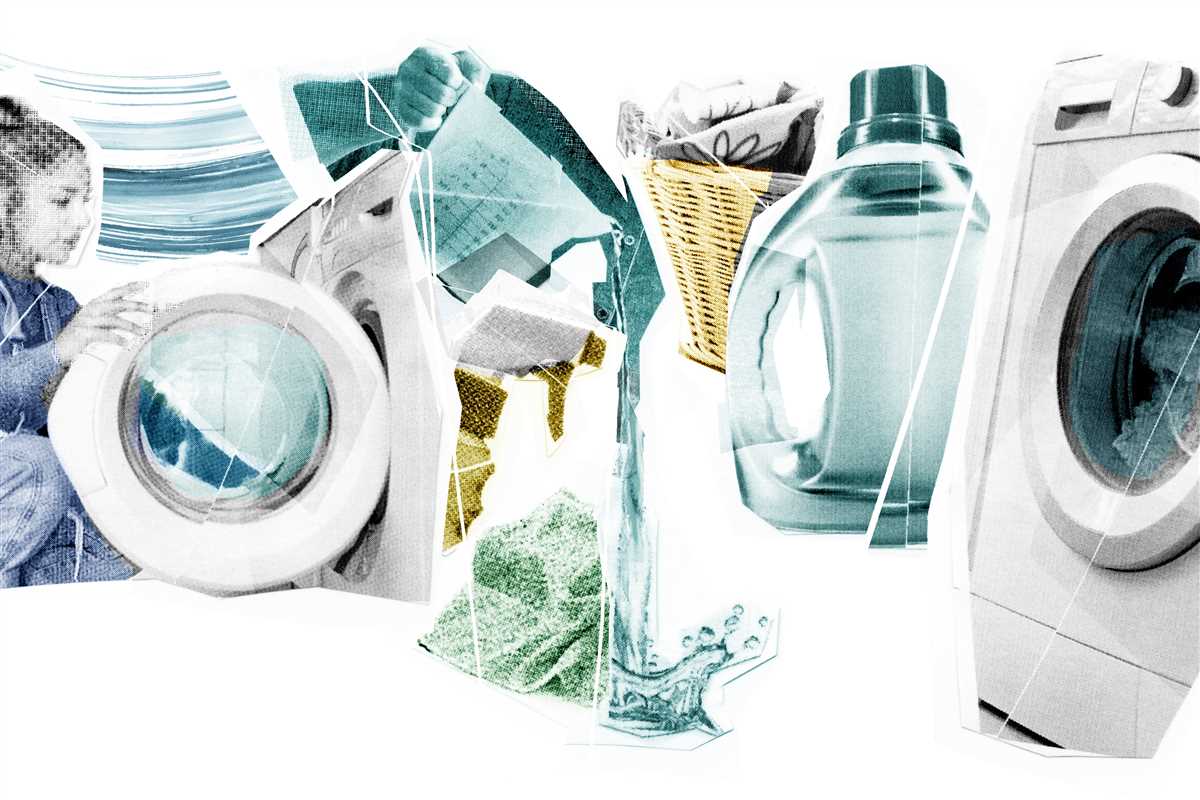
- Wasted water: Similar to energy, running a washing machine empty means that water is being used without any purpose. This results in wasted water, especially in areas where water scarcity is a concern.
- Potential damage: Some washing machines rely on the weight of the load to balance during the wash. Running the machine empty may cause imbalances which can result in damage to the machine and increased water consumption due to excessive spinning.
To ensure optimal energy efficiency and water consumption, it is recommended to always run your washing machine with a full load or adjust the settings accordingly for smaller loads. This way, you can maximize the use of resources and minimize waste.
Tips for Running a Washing Machine Empty
Running a washing machine empty can be useful for a variety of reasons. Whether you want to clean your machine, get rid of any leftover detergent residue, or remove any unpleasant smells, here are some tips to ensure a successful empty cycle:
1. Check the manufacturer’s guidelines
Before running your washing machine empty, it’s important to read the manufacturer’s guidelines. They may provide specific instructions on how to perform a maintenance cycle or suggest certain products that are safe to use.
2. Use hot water
Using hot water can help dissolve any detergent residue or stains that may be lingering in the machine. It can also help kill bacteria and remove any unpleasant odors. Check if your machine has a specific hot water setting or simply select the highest temperature available.
3. Add a cleaning agent

Adding a cleaning agent, such as white vinegar or baking soda, can help remove any built-up dirt or grime in your washing machine. These agents are natural and safe for most machines, but be sure to check the manufacturer’s guidelines before using them.
4. Run an extra rinse cycle
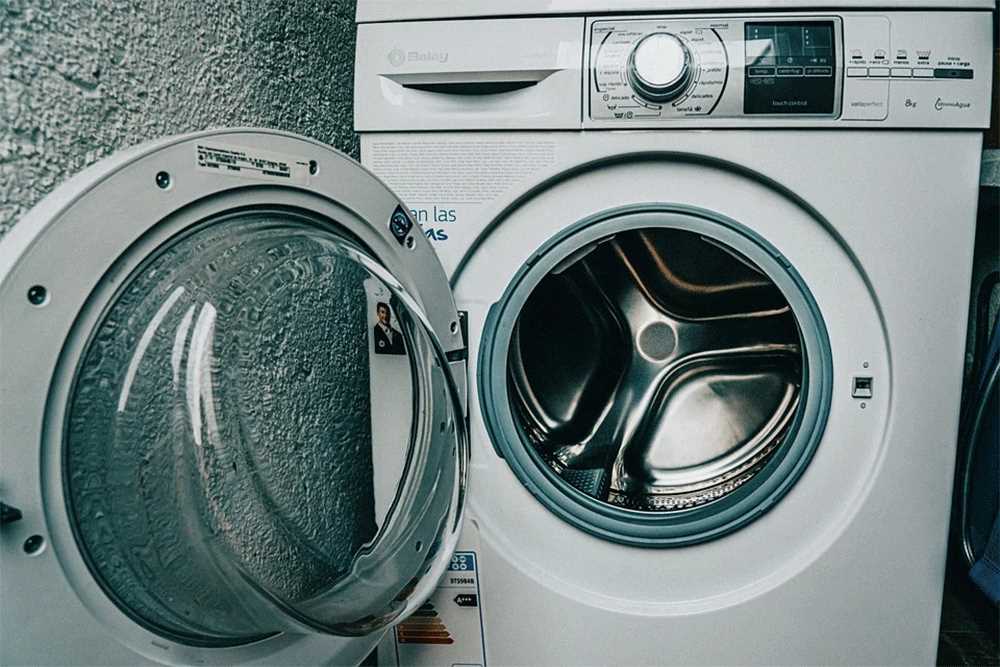
After the main empty cycle, running an extra rinse cycle can help ensure that all cleaning agents and residues are completely washed away. This will prevent any potential staining or residue transferring onto your future loads of laundry.
5. Wipe down the drum and door
Once the empty cycle is complete, take a damp cloth or sponge and wipe down the drum and door of the washing machine. This will remove any remaining residue or dirt that may have been loosened during the cycle.
By following these tips, you can keep your washing machine clean and ensure optimal performance for all your future laundry loads.
FAQ
Is it okay to run a washing machine without any clothes in it?
Yes, it is generally okay to run a washing machine without any clothes in it. Running an empty cycle can be beneficial for cleaning the drum and removing any residue or odours. However, it is important to check the manufacturer’s instructions for your specific washing machine, as some models may have different guidelines.
How often should I run an empty cycle in my washing machine?
The frequency of running an empty cycle in your washing machine depends on several factors, such as how often you use the machine and the type of detergent you use. As a general guideline, it is recommended to run an empty cycle once every 1-3 months to clean the drum and prevent any build-up of residue or odours. However, if you notice any issues with your machine or if it begins to smell, it may be a good idea to run an empty cycle more frequently.
What should I use to clean my washing machine during an empty cycle?
During an empty cycle, it is recommended to use a cleaning agent specifically designed for washing machines. There are various options available on the market, including washing machine cleaners or specific household ingredients such as vinegar or baking soda. Follow the instructions provided with the cleaning agent to ensure proper usage and to effectively clean the drum and remove any residue or odours.
Are there any benefits to running an empty cycle aside from cleaning the drum?
Yes, running an empty cycle can have additional benefits aside from cleaning the drum. It can help in removing any lingering detergent residue, maintaining the efficiency of the machine, and preventing the development of musty smells. Furthermore, running an empty cycle with hot water can also help in sanitizing the drum and killing any bacteria or germs that may be present. Overall, regularly running empty cycles can contribute to the longevity and optimal performance of your washing machine.












